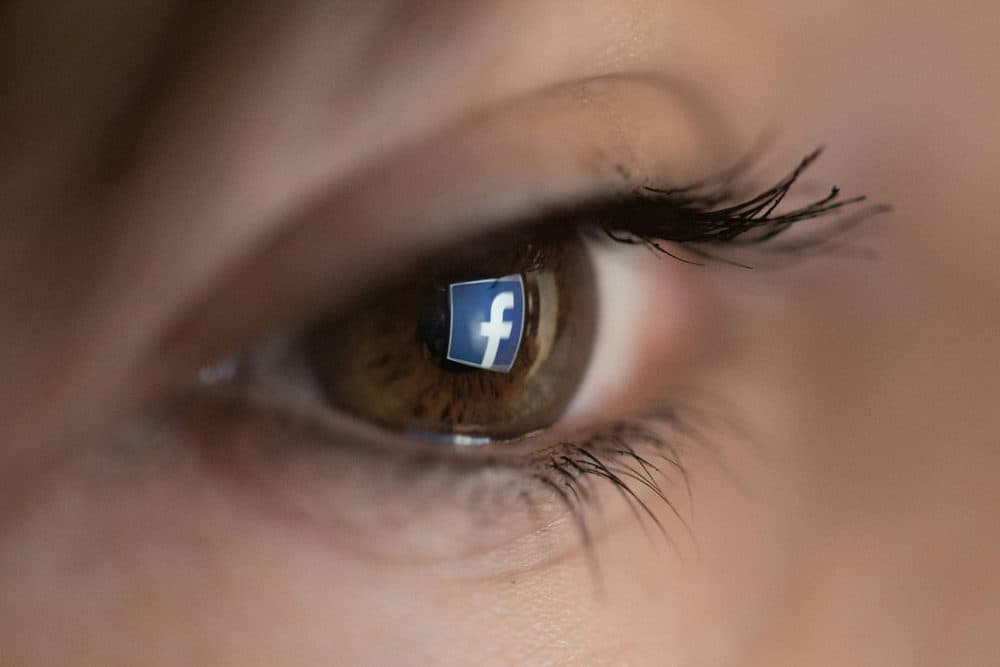Advertisement
A Threat To Democracy? What Social Media Has Done To Us

Are social networks driving us into partisan factions at the expense of the common good? We look at social media and democracy.
Guests
Jonathan Haidt, social psychologist, professor of ethical leadership, New York University’s Stern School of Business. Co-author of "The Coddling of the American Mind." (@JonHaidt)
Sherry Turkle, professor of the social studies of science and technology at MIT. Author of "Reclaiming Conversation: The Power of Talk in the Digital Age." (@sturkle)
From The Reading List
The Atlantic: "The Dark Psychology of Social Networks" — "Suppose that the biblical story of Creation were true: God created the universe in six days, including all the laws of physics and all the physical constants that apply throughout the universe. Now imagine that one day, in the early 21st century, God became bored and, just for fun, doubled the gravitational constant. What would it be like to live through such a change? We’d all be pulled toward the floor; many buildings would collapse; birds would fall from the sky; the Earth would move closer to the sun, reestablishing orbit in a far hotter zone.
"Let’s rerun this thought experiment in the social and political world, rather than the physical one. The U.S. Constitution was an exercise in intelligent design. The Founding Fathers knew that most previous democracies had been unstable and short-lived. But they were excellent psychologists, and they strove to create institutions and procedures that would work with human nature to resist the forces that had torn apart so many other attempts at self-governance.
"For example, in 'Federalist No. 10,' James Madison wrote about his fear of the power of 'faction,' by which he meant strong partisanship or group interest that 'inflamed [men] with mutual animosity' and made them forget about the common good. He thought that the vastness of the United States might offer some protection from the ravages of factionalism, because it would be hard for anyone to spread outrage over such a large distance. Madison presumed that factious or divisive leaders 'may kindle a flame within their particular States, but will be unable to spread a general conflagration through the other States.' The Constitution included mechanisms to slow things down, let passions cool, and encourage reflection and deliberation."
Advertisement
Forbes: "Evidence Mounts Of Social Media’s Negative Impacts For Democracy" — "This week we learned more about the negative impacts that social media are having on democracy and internet freedom worldwide. On Monday, Freedom House published its 'Freedom on the Net 2019' report, which warned of a worsening 'crisis of social media.'
"The report warns that social media 'are now tilting dangerously toward illiberalism' as more governments and 'unscrupulous partisan operatives' use social media for repressive purposes. These include not only malign propaganda campaigns at home and abroad, but also growing government use of social media for mass surveillance. 'As a result of these trends,' Freedom House reports, 'global internet freedom declined for the ninth consecutive year in 2019.
"These findings are based on an assessment of the state of internet freedom in 65 countries. The results are not encouraging. Of the 65 countries assessed, 33 saw a decline in internet freedom, with a record 47 featuring 'arrests of users for political, social, or religious speech.'"
Washington Post: "The ‘Silicon Six’ spread propaganda. It’s time to regulate social media sites" — "I get it: I’m one of the last people you’d expect to hear warning about the danger of conspiracies and lies. I’ve built a career on pushing the limits of propriety and good taste. I portrayed Borat, the first fake-news journalist, along with satirical characters such as Ali G, a wannabe gangster, and Bruno, a gay fashion reporter from Austria. Some critics have said my comedy risks reinforcing old racial and religious stereotypes.
"I admit that most of my comedy over the years has been pretty juvenile. However, when Borat was able to get an entire bar in Arizona to sing 'throw the Jew down the well,' it revealed people’s indifference to anti-Semitism. When, as Bruno, I started kissing a man in a cage fight in Arkansas and nearly started a riot, it showed the violent potential of homophobia. And when, disguised as an ultra-woke developer, I proposed building a mosque in one rural community, prompting a resident to proudly admit, 'I am racist, against Muslims,' it showed a wide acceptance of Islamophobia.
"The ugliness my jokes help reveal is why I’m so worried about our pluralistic democracies. Demagogues appeal to our worst instincts. Conspiracy theories once confined to the fringe are going mainstream, fueled in part by President Trump, who has spread such paranoid lies more than 1,700 times to his 67 million Twitter followers. It’s as if the Age of Reason — the era of evidential argument — is ending, and now knowledge is delegitimized and scientific consensus is dismissed. Democracy, which depends on shared truths, is in retreat, and autocracy, which thrives on shared lies, is on the march. Hate crimes are surging, as are murderous attacks on religious and ethnic minorities."
This program aired on November 27, 2019.
